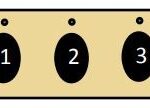Navigating the world of orthopedic surgery away rotations can feel overwhelming. Many medical students wonder if the location of their away rotation truly matters to residency programs. The truth is nuanced, and while there isn’t a magic formula, understanding what programs value can significantly shape your approach to these crucial experiences. It’s less about the prestige of the location and more about what you make of the opportunity.
Choosing the right location for your orthopedic away rotation should start with your personal preferences and learning goals. Consider what kind of patient base and environment you thrive in. Are you drawn to high-energy, fast-paced trauma centers, or do you prefer the detailed planning and execution of elective surgery cases? A Level 1 trauma center will offer a vastly different experience compared to a Level 2 facility. Don’t get caught up in program names alone; many excellent orthopedic programs exist, and the “best” one for you depends on your individual needs and aspirations. Focus on programs that align with your interests and the type of practice you envision for yourself.
When it comes to applications, timing is key. Orthopedic away rotation slots are competitive, so aim to apply as early as possible, ideally on the very first day applications are accepted. It’s also a strategic move to apply to a couple of programs per rotation slot. This provides a backup plan if your first choice doesn’t work out. Most programs understand that students may need to adjust their schedules and are generally accommodating with cancellations, especially if you provide ample notice.
A common experience during away rotations is the feeling of starting over at each new location. Residency programs and residents are unfamiliar with your skills and work ethic when you arrive. The level of responsibility and autonomy you’re given will naturally reset at each rotation. Medical students arrive with diverse skill sets, so it’s essential to quickly and respectfully demonstrate your capabilities. Be confident but humble, and show initiative while being receptive to guidance. With each subsequent away rotation, this process of integrating and proving yourself should become smoother and more efficient.
Perhaps the most crucial, yet often underestimated, aspect of away rotations is your attitude. Residency programs are not just evaluating your medical knowledge and surgical skills; they are also assessing if you would be a good fit for their team. No one wants to work alongside a tense or difficult rotator. Remember, you are there to learn and contribute as a medical student. From July to October, senior residents are also heavily involved in training new interns. Be helpful, approachable, and maintain a relaxed demeanor. This positive attitude will significantly increase your chances of getting valuable opportunities. If you don’t get every opportunity you hoped for, avoid taking it personally. Program directors and residents are balancing your learning experience with the long-term training of their interns who will be with them for the entirety of their residency.
Reinforcing the point about attitude: Numerous highly capable medical students have been perceived negatively by residents simply due to an awkward or uncooperative attitude during their rotations. It’s crucial to relax and be yourself, but always in a professional and respectful manner. Trying to be someone you’re not for a short rotation is unsustainable and transparent. Authenticity and a positive, helpful approach will serve you much better. Focus on being a valuable team member and demonstrating your genuine interest in orthopedic surgery.
Instead of seeking specific reviews of individual programs, which are often subjective and quickly outdated, concentrate on researching program profiles and identifying locations where you genuinely see yourself thriving and potentially matching. Choose a mix of “reach” programs and programs where you feel you would be a strong candidate. Select a couple of programs you are highly interested in (“wants”) and at least one that you would be happy to attend (“like”). Most importantly, approach your away rotations with enthusiasm and a willingness to learn. This period is not just an evaluation; it’s a chance to experience orthopedic surgery firsthand and confirm your passion for this field. Have fun and make the most of this formative experience – it’s the beginning of your career in orthopedics!
